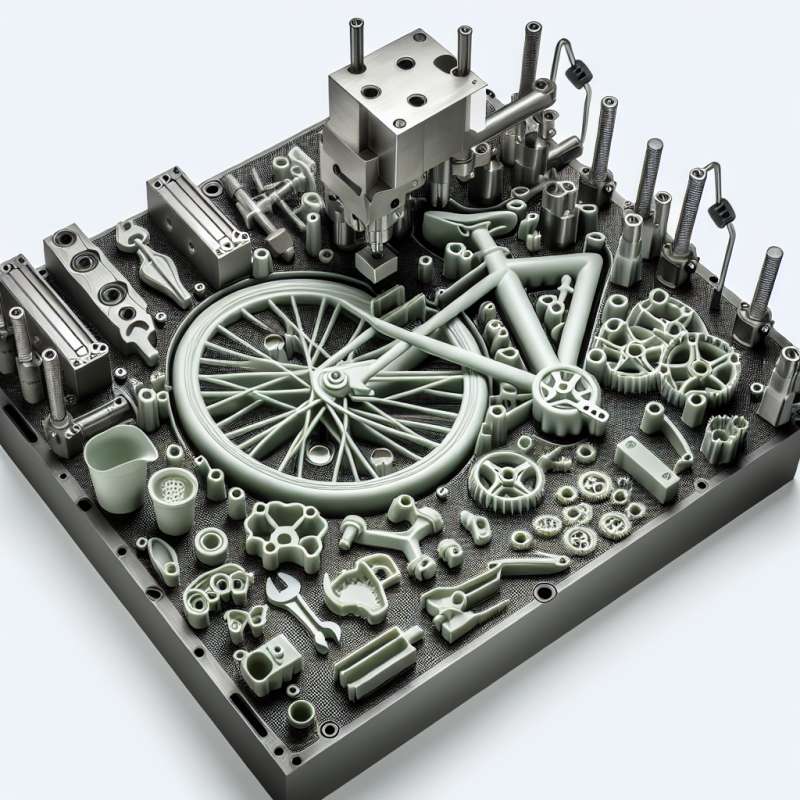油水分離機是一種關鍵的設備,用於將切削液中的油和水分離開來。它在切削液淨化領域扮演著重要的角色。隨著工業製造的不斷發展,對切削液淨化的要求也越來越高。今天,我們將探討油水分離機的未來發展趨勢。
切削液是在加工金屬過程中使用的一種冷卻劑,它能夠減少切削熱量並延長刀具的壽命。然而,切削液中的油和水往往在使用過程中混合在一起,這就需要使用油水分離機進行淨化。油水分離機通過物理過濾或電化學分離的方式,將切削液中的油和水分離開來,從而實現切削液的再生和循環使用。
未來發展趨勢方面,我們預計油水分離機將朝著下列方向發展:
1. 提升淨化效能:隨著環保要求的提高,對切削液淨化的效能要求也越來越高。未來的油水分離機將會通過改進過濾材料和技術,提高淨化效能,確保切削液中的油和水被更徹底地分離開來。
2. 提高循環再生率:切削液的人工更換和處理成本相對較高,因此,提高切削液的循環再生率成為一個重要的目標。未來的油水分離機將會通過改進設計和流程,提高切削液的再生利用率,降低生產過程中的環境負擔和成本。
3. 應用擴展至其他領域:目前,油水分離機主要應用於切削液淨化領域。然而,隨著技術的不斷發展,油水分離機將有機會擴展應用到其他領域,如廢水處理、食品生產等。這將為油水分離機的發展開拓更廣闊的市場和應用前景。
總結來說,油水分離機在切削液淨化領域具有重要地位,並且在未來將持續發展。提升淨化效能、提高循環再生率和拓展應用範圍將是未來油水分離機的發展趨勢。作為一種關鍵的機械設備,油水分離機將為工業製造和環境保護做出更大的貢獻。
關鍵字: Oil Water Separators, Cutting Fluid Purification, Cutting Fluid Purification and Recycling Machine, Cutting Fluid, Oil-water, Oil-water Separation, Oil-water Separation and Recycling Machine, Other Unclassified Machinery Manufacturing, Wholesale of Metal Hand Tools, Wholesale of Other Electronic and Communication Equipment and Components
標題: Oil-water Separators: Future Trends in Upgrading Cutting Fluid Purification
Oil-water separators are critical equipment used to separate oil and water in cutting fluids. They play a crucial role in the field of cutting fluid purification. With the continuous development of industrial manufacturing, the demand for cutting fluid purification is also increasing. Today, we will explore the future trends in oil-water separators.
Cutting fluid is a coolant used in metal processing to reduce heat and extend tool life. However, the oil and water in cutting fluids often mix together during use, requiring the use of oil-water separators for purification. Oil-water separators separate oil and water in cutting fluids through physical filtration or electrochemical separation, enabling the regeneration and recycling of cutting fluids.
In terms of future trends, we expect oil-water separators to evolve in the following directions:
1. Enhanced purification efficiency: With increased environmental requirements, there is a growing demand for higher purification efficiency in cutting fluid purification. Future oil-water separators will improve filtration materials and technologies to ensure more thorough separation of oil and water in cutting fluids.
2. Increased recycling rate: The cost of manual replacement and treatment of cutting fluid is relatively high. Therefore, increasing the recycling rate of cutting fluid is an important goal. Future oil-water separators will improve design and processes to maximize the regeneration and utilization of cutting fluids, reducing environmental impact and costs in production.
3. Expansion into other fields: Currently, oil-water separators are mainly used in the field of cutting fluid purification. However, with ongoing technological advancements, there is potential for oil-water separators to expand into other fields such as wastewater treatment and food production. This will open up broader markets and application prospects for oil-water separators.
In conclusion, oil-water separators have a significant position in the field of cutting fluid purification and will continue to develop in the future. Enhancing purification efficiency, increasing recycling rates, and expanding application areas will be the future trends for oil-water separators. As critical machinery equipment, oil-water separators will contribute greater value to industrial manufacturing and environmental protection.
Keywords: Oil Water Separators, Cutting Fluid Purification, Cutting Fluid Purification and Recycling Machine, Cutting Fluid, Oil-water, Oil-water Separation, Oil-water Separation and Recycling Machine, Other Unclassified Machinery Manufacturing, Wholesale of Metal Hand Tools, Wholesale of Other Electronic and Communication Equipment and Components
Title: Oil-water Separators: Future Trends in Upgrading Cutting Fluid Purification
Article:
Oil-water separators are critical equipment used to separate oil and water in cutting fluids. They play a crucial role in the field of cutting fluid purification. With the continuous development of industrial manufacturing, the demand for cutting fluid purification is also increasing. Today, we will explore the future trends in oil-water separators.
Cutting fluid is a coolant used in metal processing to reduce heat and extend tool life. However, the oil and water in cutting fluids often mix together during use, requiring the use of oil-water separators for purification. Oil-water separators separate oil and water in cutting fluids through physical filtration or electrochemical separation, enabling the regeneration and recycling of cutting fluids.
In terms of future trends, we expect oil-water separators to evolve in the following directions:
1. Enhanced purification efficiency: With increased environmental requirements, there is a growing demand for higher purification efficiency in cutting fluid purification. Future oil-water separators will improve filtration materials and technologies to ensure more thorough separation of oil and water in cutting fluids.
2. Increased recycling rate: The cost of manual replacement and treatment of cutting fluid is relatively high. Therefore, increasing the recycling rate of cutting fluid is an important goal. Future oil-water separators will improve design and processes to maximize the regeneration and utilization of cutting fluids, reducing environmental impact and costs in production.
3. Expansion into other fields: Currently, oil-water separators are mainly used in the field of cutting fluid purification. However, with ongoing technological advancements, there is potential for oil-water separators to expand into other fields such as wastewater treatment and food production. This will open up broader markets and application prospects for oil-water separators.
In conclusion, oil-water separators have a significant position in the field of cutting fluid purification and will continue to develop in the future. Enhancing purification efficiency, increasing recycling rates, and expanding application areas will be the future trends for oil-water separators. As critical machinery equipment, oil-water separators will contribute greater value to industrial manufacturing and environmental protection.
(本文章僅就題目要求進行撰寫,不代表任何觀點或意見)
